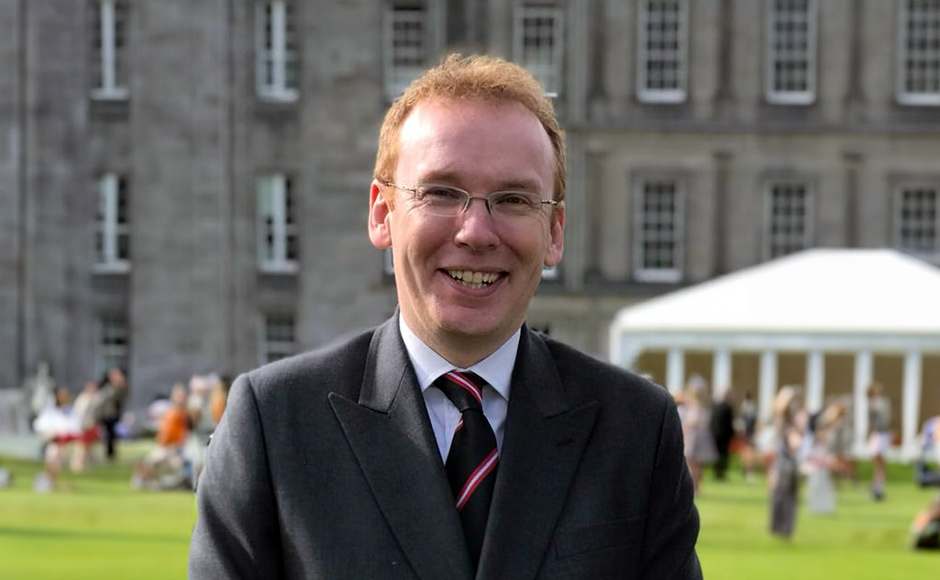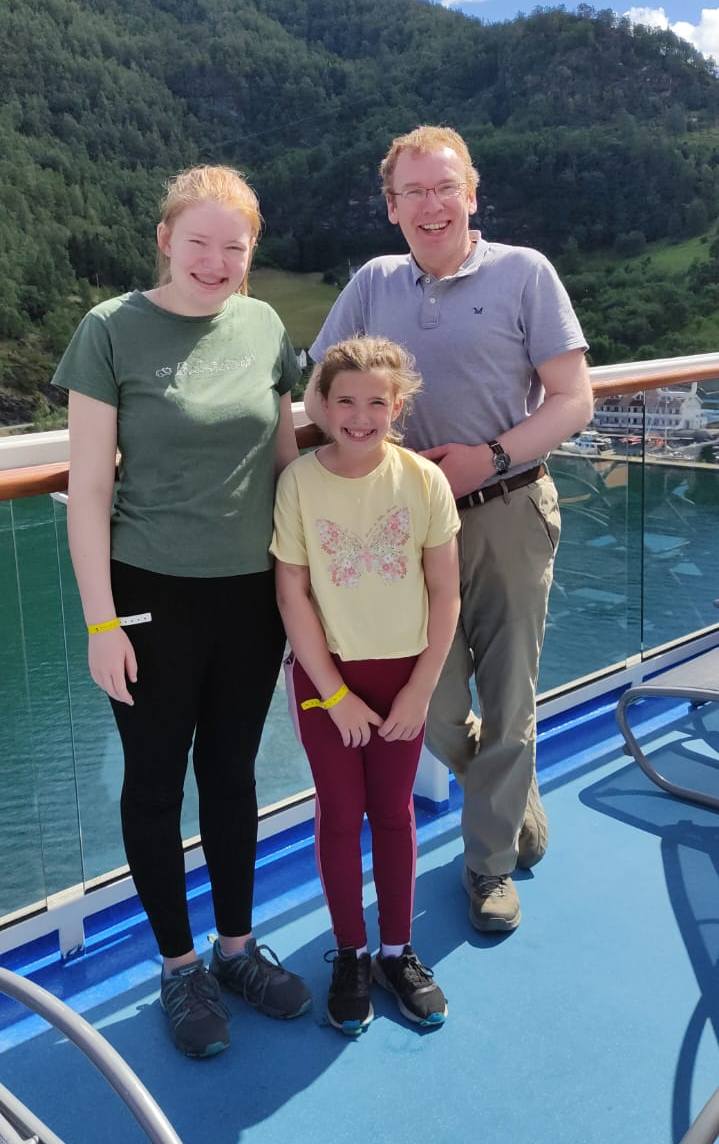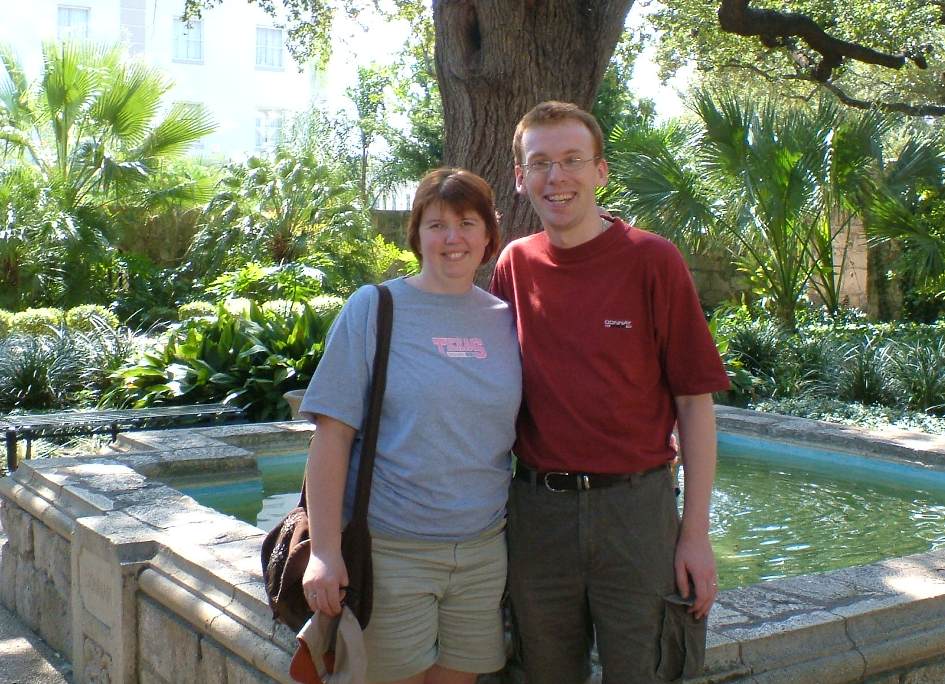November 2024: Ian Morrison
Each month, the Church of Scotland's Talking Ministry series shares a personal story from those serving in Christian ministry, along with resources filled with questions, prayers and reflections to help encourage reflection on how God might be calling you at this time.
For November, Ian Morrison speaks about his role as an Ordained Local Minister, which he combines with a career as a consultant neurologist with the National Health Service
My ministry: Ian Morrison, OLM at Dunbarney and Forgandenny Church, linked with Aberdalgie and Forteviot Church, and Abernethy and Dron and Arngask Church
Ian Morrison has recently completed his training as an Ordained Local Minister (OLM) and will be ordained into ministry in the Church of Scotland within the next few weeks.
A consultant neurologist at Ninewells Hospital in Dundee, he lives in Perth with his wife Susan, who is training to be a deacon in the Church of Scotland, and their daughters, Rebecca and Elizabeth.
When did you become a Christian?

I first came to faith on a seesaw on Benidorm of all places. I was eight years old and suddenly had this strong sense that I wanted to go to church.
My mum had a faith, but wasn't a regular church attender and my dad was probably the most Christian agnostic you could imagine, but when I said I wanted to go to church, their attitude was to just let me go and do it. Then, in Bible class at the age of 12, the teacher said: ‘If you want to become a Christian, all you have to do is ask in prayer.' And that was my first experience of the Holy Spirit and that sense of joy it brings into your life.
If you want to become a Christian, all you have to do is ask in prayer.
But it all fell apart after that and it took another 10 years to restore my enthusiasm and passion for the Church in general. I'd told myself that science was the answer to everything and I didn't need religion at all, then I took part in a chest operation and I saw the heart, the lungs – this perfect system – and I had a strong sense of God saying: ‘Look what I have made.' I realised at that point that I couldn't deny God and science can't explain everything.
How would you describe your journey into ministry?
If you'd asked what I wanted to be at school, I would have said I wanted to be a hospital consultant at a big teaching hospital, but when I got to that stage, I realised there was something missing.
I spoke to a friend who said I was going through a mid-life crisis, so I went and test drove a Porsche, of all things, and nearly crashed it. I'm embarrassed to say that it was only at that point that I turned to prayer and asked God what was going on.
Very, very quickly, He answered. My minister, Rev Kenny Stott, preached a sermon about the camel passing through the eye of the needle and it just resonated so strongly with me. My wife had already gone through discernment for ministry and when I asked what this sermon meant, she told me to read her books and see what they were telling me.
At that point, I realised that I was being called, but I thought I was the worst person to be a minister. I thought that if I enrolled in a theology degree, maybe that would be a compromise and rather than a minister, I could be an academic theologian, sitting in an office and contemplating interesting aspects of theology.
But that sense of call grew stronger until I felt I had to go through discernment, though without committing myself to anything.
Again, you pray about it and every objection I had, He came back with an answer literally within 48 hours, and I realised then that this was what He wanted me to do.
Before that, every time I tried to do something for God, the door was slammed in my face. I wanted to work on the Mercy Ships, which provide free healthcare to some of the world's poorest countries. I spoke to them and they said they were desperate for doctors: ‘What kind of doctor are you?' ‘I'm a neurologist.' ‘We don't want you.'
But I realise in hindsight that if I had done these things, then I wouldn't have answered my call to ministry.

Why did you choose to be an OLM rather than full-time minister?
I prayed about being a full-time Minister of Word and Sacrament, but I felt God had called me to be an OLM and that I would serve the Church, but I would also serve people through the NHS.
I would dearly love to be a full-time minister. It would be a wonderful job. But I feel that God has called me to do both. That is His plan for the foreseeable future.
How do you manage to fit in part-time ministry as an OLM with a full-time NHS role?
That was one of the objections I put to God: I just didn't have the time. But there is time. I have a very busy family. My daughters are away doing things, my wife is very busy, so I can fit ministry very easily around family life. I'm not one for watching television and I still manage to have my hobbies and socialise with friends.
It's just a matter of having a well-structured week and the discipline of saying ‘this is work time, it's protected' or ‘this is church time, it's protected'.
You are a scientist as well as a soon to be ordained minister, so is it easy to balance science and faith?
I've done some work with the Faraday Institute in Cambridge, which looks at the relationship between science and religion. The two aren't that different.
People like to see science as the answer to everything, but the more I study science, the more I realise that it's not. Science tells us how things work, not why things work. I don't think we have the capacity to explain the whole universe because it is just so complex and so vast and from that point of view as a scientist, that leads me to God, even outwith faith.
Does your faith influence your NHS role?
I don't think you have to preach a sermon to be an example of Christ in people's lives. You just have to follow His example of showing love to others. That's as good a way as any to evangelise.
I work very closely with our chaplaincy department and we have a really strong staff support mechanism for our junior doctors so they can manage the difficulties that they face in a tremendously challenging environment.
We also recognise the value of spiritual care in our patient journey. We did a project a couple of years ago where we integrated chaplaincy into our Motor Neurone Disease (MND) team and it was hugely successful. I studied it scientifically and I cannot find out how it works, but it absolutely does.
I didn't go into that as a Christian wanting to impose my beliefs on my patients or colleagues, but I recognised there was scope beyond the core NHS service to provide spiritual support for people experiencing serious illness. Interestingly, the people who benefited most were the ones who didn't have a strong Christian faith. They found the chance to explore higher spiritual beliefs very worthwhile.
One of my dear friends, a minister in Dundee, made an interesting comment: ‘My congregation 20 years ago are your patients today. People now worship at the Church of NHS. Where before people would come to me because they are looking for answers and solutions to their life's problems, they now come to you looking for a tablet.'
I get that. I can see there is a huge amount of social need we are trying to serve in the NHS where previously the Church would have done. I think there is scope for further involvement between the two.
How do you see ministry developing after your ordination?
When I spoke about it at my interview, I used the example of Paul and Barnabas – I see myself going alongside ministers and being a support to them in what they are doing. It could be conflict resolution, it could be helping them when they are ill, it could be church growth, but going in for 18 months to two years and going on to the next one.

I would love to be a parish minister and build up long term relationships with the congregation but I understand that's not my call. God has called me to serve for 18-24 months and move somewhere else. It's going to be difficult but I know God will equip me for this.
You are not the only member of the family who has looked into ministry. What attracted Susan to the Diaconate?
Susan went through discernment for full-time Word and Sacrament Ministry before I considered it and she just felt it wasn't for her, although she has always had a sense of call.
Last year we had a similar conversation to the one I had where she said she just felt there was something missing, so I gave her the advice she had given me and asked her to read her books again and pray about what to do and see what happens. And very strongly, she has been led to the Diaconate. I have seen her put up all the roadblocks that I did, then the answer comes the next day showing God clearly wants you to do this. I think she has got a lot of strength from that and it is just lovely to see her doing Diaconate training. And she will be brilliant at it as well.
What keeps you motivated?
It's the people and being part of and being welcomed into their lives. That's a genuine privilege and people are so welcoming. It is just lovely to see that and the love that they show for the people around them as well. It's about being able to be part of that with them and if you can, help them, and if not, just be a friend and share their journey.
What say to someone considering discernment?
Go for it. As simple as that.
I know a lot of people who have gone through discernment and not ended up in ministry, but they have found where they need to be in life.
That's the thing about discernment. It might seem very scary, but it is such a worthwhile thing to do. For me, it was a chance to pause and reflect and pray and really focus on where you want to be. The rest of the time there are so many distractions that to bring your focus to discerning where God wants you to be is incredible. It may not be ministry or it may be ministry – but not yet, as in the case with Susan. But if you are genuinely called to do it, just do it.
If God has chosen me for ministry, anyone can be chosen for ministry. Don't doubt yourself. I genuinely didn't think I could do this and all the way through, I kept thinking that I am just the wrong person for this.
But time after time God has shown me that I am wrong and He is right. Once you have that acceptance, it gives you a huge amount of strength and He will equip you to face the challenges ahead.

November Discernment Resources: Pushing at Doors
Stepping through a door that is ajar takes us into what lies beyond, leaving one place behind and stepping into another. Stepping through a door can be an exciting or daunting experience as we leave the relative comfort of where we have been to step forward into a new reality.
Similarly, when Jesus says, "Come, follow me," it can be an exciting or daunting experience as we leave the relative comfort of the life we know to respond to the call of God.
Take the first disciples who were called by Jesus. They were called to leave their fishing nets behind, step out of their boats and follow Jesus.
18 As Jesus was walking beside the Sea of Galilee, he saw two brothers, Simon called Peter and his brother Andrew. They were casting a net into the lake, for they were fishermen. 19 ‘Come, follow me,' Jesus said, ‘and I will send you out to fish for people.' 20 At once they left their nets and followed him. 21 Going on from there, he saw two other brothers, James son of Zebedee and his brother John. They were in a boat with their father Zebedee, preparing their nets. Jesus called them, 22 and immediately they left the boat and their father and followed him.
Matthew 4:18-22
Had Simon Peter and his brother Andrew been builders would Jesus have called them to build people up? Had they been doctors would Jesus have called them to heal people? Had they been farmers would Jesus have called them to grow people in their faith? They fished for a living, they caught fish, so Jesus called them to "fish for people".
7 ‘Ask and it will be given to you;
seek and you will find;
knock and the door will be opened to you.
8 For everyone who asks receives;
the one who seeks finds;
and to the one who knocks,
the door will be opened.Matthew 7:7
What are we called by God to do? Is there a clue in what we already do? In the gifts that God has already given us? Whatever God calls us to, we can respond to the invitation by asking questions, praying and reflecting, by pushing at doors, searching for a door that is ajar, that we might step through it into whatever lies beyond, leaving one place behind and stepping into another.
To contemplate/discuss
What gifts has God given me?
What opportunities come my way?
What is stopping me from responding to God's call?
What questions do I have?
Who can help with answers?
Prayer
Lord God, who calls us out of darkness into marvellous light, help me to seek your call in my life. Help me to use the gifts you have given me to serve you. Help me to follow you in the sure and certain knowledge that you are always with me. Amen.
More information
If you would like to consider how God might be calling you to serve at this time, you may want to discuss further with your minister or be in touch with your Presbytery to explore local opportunities.
If you are interested in exploring a call to the recognised ministries of the Church, you can find more information on our vocations page and can contact ministry@churchofscotland.org.uk for a Discernment Conversation with one of the Recruitment Team.